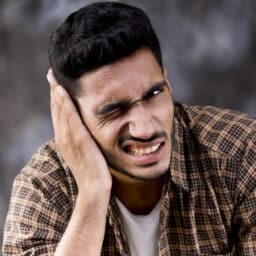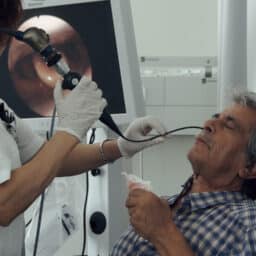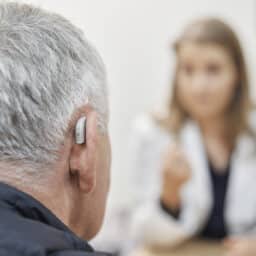Understanding and Treating Ear Pain When Swallowing

Your ears, nose and throat are connected through a series of tubes. This connection often explains why you might feel pain in your ears when you swallow food or drink. By understanding the common causes of this discomfort, you can find the right treatment and enjoy your meals without pain. Three Common Causes of Ear…
What Is Allergy Avoidance and How Can It Help Manage Your Symptoms?

Allergies can turn a day outside into a battle with itchy eyes, sneezing and congestion. More than 50 million people have an allergic reaction each year, making allergies the sixth-leading cause of long-term illness in the U.S. Often, the easiest way to avoid allergy symptoms is to avoid your allergens altogether, also known as allergy…
How to Care For Your ENT Health While Traveling

Whether you’re traveling for work or jetting off on a tropical vacation, staying healthy during your trip is essential. While packing your suitcase, carry-on or personal item, take some time to consider how you can care for your ear, nose and throat (ENT) health during travel. Protecting Against Illness Maintaining a healthy immune system is…
Nasal Endoscopies: What To Know

A nasal endoscopy is a medical procedure used to examine the nasal passages and sinuses. If your ENT specialist has recommended a nasal endoscopy, knowing what to expect from the procedure can help you prepare and calm any nerves. Let’s examine why your provider may recommend an endoscopy and what you can expect before, during…
Pediatric Bronchiolitis: What To Know

Bronchiolitis is a prevalent lung condition affecting young children, marked by swelling, irritation and mucus accumulation in the lungs’ tiny airways. For parents, understanding this illness is crucial for timely and effective care. Let’s take a look at the signs of bronchiolitis in children, the critical point to seek medical advice, treatment options and tips…
Common Causes of Itchy Eyes, Throat and Ears

Home remedies often serve as our go-to solution for an annoying itch in our eyes, nose or ears. Many times, we brush these symptoms off as trivial, yet a closer look at the root causes can help us avoid these bothersome symptoms down the line. What Underlies the Itch? Itchiness can spring from a multitude…
The Importance of Good Sinus Care

We often don’t think of our sinuses, the empty spaces behind our facial bones, until we notice they’re clogged up or inflamed, but caring for your sinuses is actually crucial for your overall health and well-being. Role of Sinuses in Overall Health Understanding the purpose and function of sinuses is the first step in appreciating…
Can Ear Infections Cause Hearing Loss?

Ear infections are one of the most common pediatric conditions each year. Adults can also have ear infections, but it is far more common in children. You may wonder how ear infections can impact your hearing. Hearing loss can have several causes, and an ear infection can be one of them. The more you understand…
How Exercise Can Affect Your Hearing Health

Exercise is long known to have several health benefits and can even be a key to preventing presbycusis, or age-related hearing loss. According to a 2019 study, adults aged 60-69 with hearing loss had a poorer physical activity profile, linking physical activity to hearing health. So, work routine hikes at Forest Park into your exercise regimen…
When Should You Change Your Hearing Aid Programming?

In 2019, 7.1% of adults 45 and over used a hearing aid. The small but technologically advanced devices help treat hearing loss by amplifying speech sounds, suppressing irrelevant or annoying background noise, managing tinnitus symptoms and more. While the majority of hearing aids have the same essential components: a microphone to collect sound, a processor…